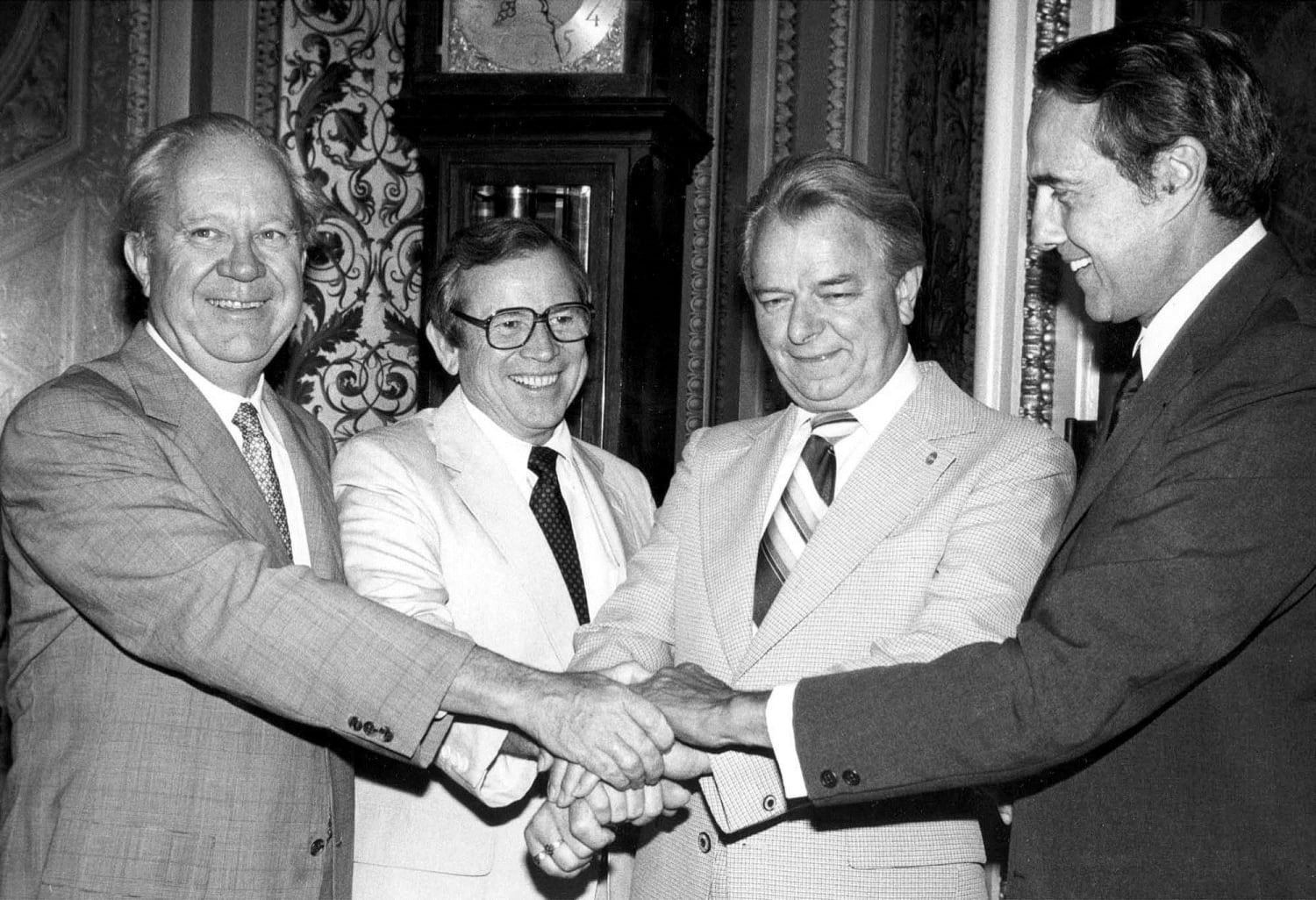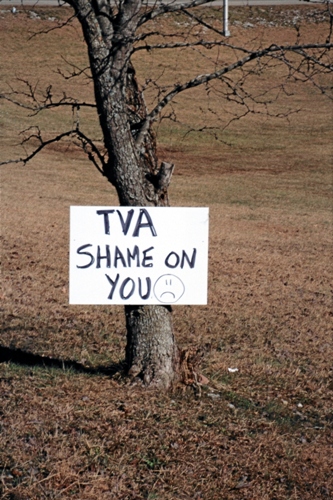Fred Thompson aided Nixon on Watergate
By JOAN LOWY, Associated Press Writer
Sat Jul 7, 4:38 PM ET
Fred Thompson gained an image as a tough-minded investigative counsel for the Senate Watergate committee. Yet President Nixon and his top aides viewed the fellow Republican as a willing, if not too bright, ally, according to White House tapes.
Thompson, now preparing a bid for the 2008 GOP presidential nomination, won fame in 1973 for asking a committee witness the bombshell question that revealed Nixon had installed hidden listening devices and taping equipment in the Oval Office.
Those tapes show Thompson played a behind-the-scenes role that was very different from his public image three decades ago. He comes across as a partisan willing to cooperate with the Nixon White House's effort to discredit the committee's star witness.
It was Thompson who tipped off the White House that the Senate committee knew about the tapes. They eventually cinched Nixon's downfall in the scandal resulting from the break-in at Democratic headquarters in the Watergate complex in Washington and the subsequent White House cover-up.
Thompson, then 30, was appointed counsel by his political mentor, Tennessee Sen. Howard Baker, the top Republican on the Senate investigative committee. Thompson had been an assistant U.S. attorney in Nashville, Tenn., and had managed Baker's re-election campaign. Thompson later was a senator himself.
Nixon was disappointed with the selection of Thompson, whom he called "dumb as hell." The president did not think Thompson was skilled enough to interrogate unfriendly witnesses and would be outsmarted by the committee's Democratic counsel.
This assessment comes from audio tapes of White House conversations recently reviewed by The Associated Press at the National Archives in College Park, Md., and transcripts of those discussions that are published in "Abuse of Power: The New Watergate Tapes," by historian Stanley Kutler.
"Oh s---, that kid," Nixon said when told by his chief of staff, H.R. Haldeman, of Thompson's appointment on Feb. 22, 1973.
"Well, we're stuck with him," Haldeman said.
In a meeting later that day in the Old Executive Office Building, Baker assured Nixon that Thompson was up to the task. "He's tough. He's six feet five inches, a big mean fella," the senator told Nixon.
Publicly, Baker and Thompson presented themselves as dedicated to uncovering the truth. But Baker had secret meetings and conversations with Nixon and his top aides, while Thompson worked cooperatively with the White House and accepted coaching from Nixon's lawyer, J. Fred Buzhardt, the tapes and transcripts show.
"We've got a pretty good rapport with Fred Thompson," Buzhardt told Nixon in an Oval Office meeting on June 6, 1973. The meeting included a discussion of former White House counsel John Dean's upcoming testimony before the committee.
Dean, the committee's star witness, had agreed to tell what he knew about the break-in and cover-up if he was granted immunity against anything incriminating he might say.
Nixon expressed concern that Thompson was not "very smart."
"Not extremely so," Buzhardt agreed.
"But he's friendly," Nixon said.
"But he's friendly," Buzhardt agreed. "We are hoping, though, to work with Thompson and prepare him, if Dean does appear next week, to do a very thorough cross-examination."
Five days later, Buzhardt reported to Nixon that he had primed Thompson for the Dean cross-examination.
"I found Thompson most cooperative, feeling more Republican every day," Buzhardt said. "Uh, perfectly prepared to assist in really doing a cross-examination."
Later in the same conversation, Buzhardt said Thompson was "willing to go, you know, pretty much the distance now. And he said he realized his responsibility was going to have be as a Republican increasingly."
Thompson, who declined comment for this story, described himself in his book, "At That Point in Time," published in 1975, as a Nixon administration "loyalist" who struggled with his role as minority counsel. "I would try to walk a fine line between a good-faith pursuit of the investigation and a good-faith attempt to insure balance and fairness," Thompson wrote.
When Dean began testifying on June 25, he implicated Nixon in the break-in and cover-up. But his testimony had little legal impact because it was his word against the president's.
During Dean's testimony, Baker asked the question that became the embodiment of the Watergate scandal: "What did the president know and when did he know it?" Thompson is sometimes credited with supplying the question to Baker.
The question was widely perceived at the time as an example of Baker's willingness to press for truth at the expense of his party's leader. Historian Kutler, however, said he believes that in the context of Dean's testimony, the question was Baker's attempt to point out that the evidence hinged on one witness's word.
It was not until three weeks later — after the disclosure of the existence of tape recordings that might either corroborate or disprove Dean's testimony — that Baker's question took on new meaning, Kutler said.
At a hearing on July 16, Thompson asked former White House aide Alexander Butterfield: "Mr. Butterfield, are you aware of the installation of any listening devices in the Oval Office of the president?"
Butterfield's confirmation of the recordings set off a cascade of events that led to Nixon's resignation 13 months later.
The question made Thompson instantly famous. His political Web site — http://www.imwithfred.com — prominently notes: "Friends in Tennessee still recall seeing the boy they'd grown up with on TV, sitting at the Senate hearing-room dais. He gained national attention for leading the line of inquiry that revealed the audio-taping system in the White House Oval Office."
What rarely is mentioned is that Thompson knew the answer to the question before he asked it. Investigators for the committee had gotten the information out of Butterfield during hours of behind-the-scenes questioning three days earlier, on July 13.
Thompson was not present, but a Republican investigator immediately tracked him down at the Carroll Arms Hotel bar where he was meeting with a reporter. Thompson called Buzhardt over the weekend to tip off the White House that the committee knew about the tapes.
"Legalisms aside, it was inconceivable to me that the White House could withhold the tapes once their existence was made known. I believed it would be in everyone's interest if the White House realized, before making any public statements, the probable position of both the majority and the minority of the Watergate committee," Thompson wrote in his book.
Scott Armstrong, a Democratic investigator for the committee who was part of the Butterfield questioning, said he was outraged by Thompson's tip-off.
"When the prosecutor discovers the smoking the gun, he's going to be shocked to find that the deputy prosecutor called the defendant and said, 'You'd better get rid of that gun,'" Armstrong said in an interview.
The committee chairman, Sen. Sam Ervin, D-N.C., had agreed to allow Thompson to question Butterfield first at the July 16 hearing as a show of bipartisanship because a GOP investigator had elicited the initial information from Butterfield.
"Fred (Thompson) and Baker carried water for the White House, but I have to give them credit — they were watching out for their interests, too," Kutler said. "They weren't going to mindlessly go down the tubes for this guy."
___
On the Net:
Nixon presidential materials: http://tinyurl.com/2bqg9a



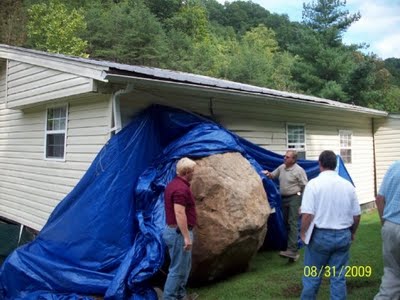
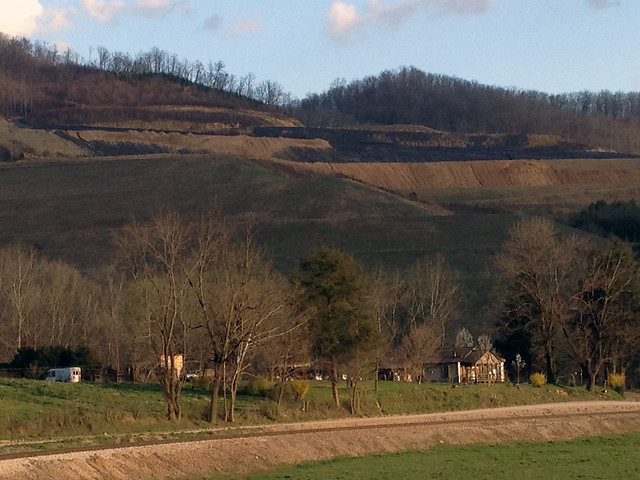
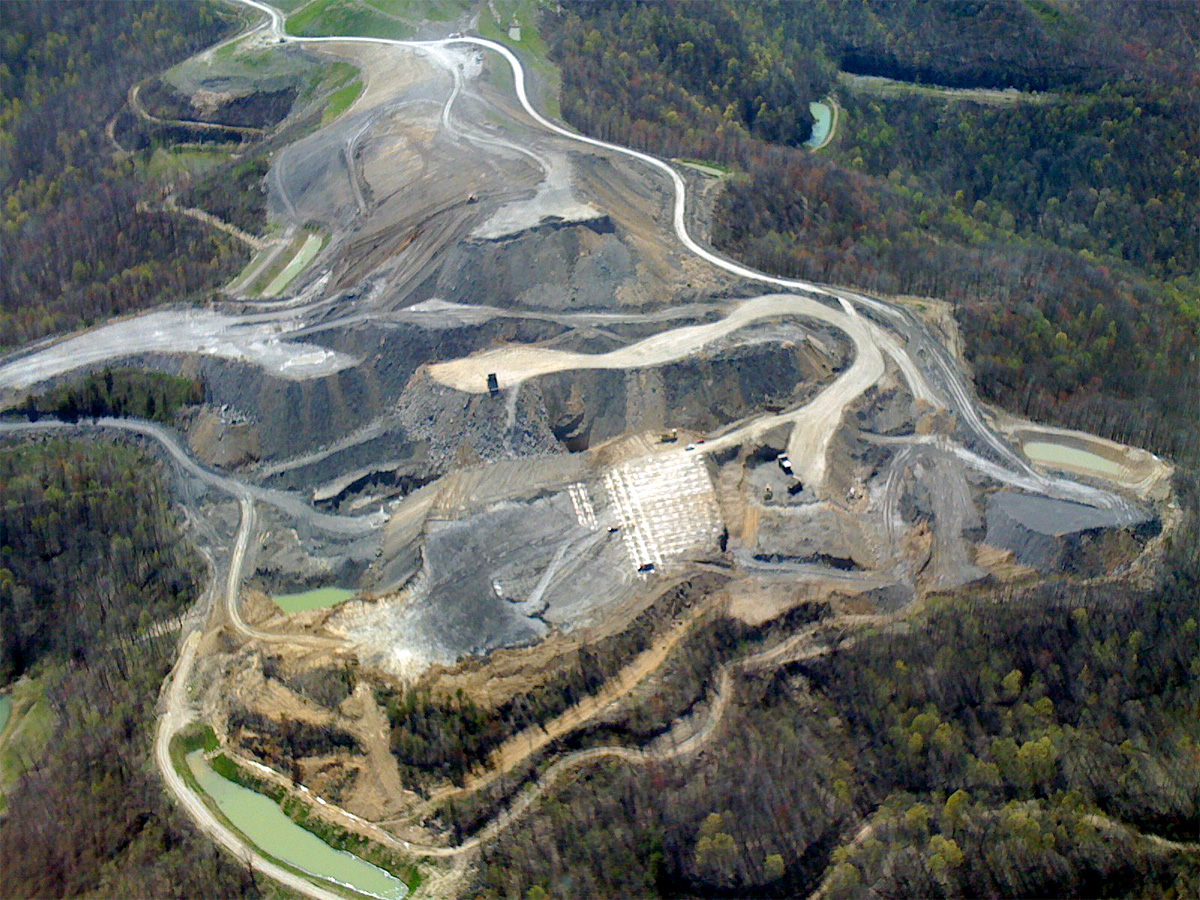








.jpg)

